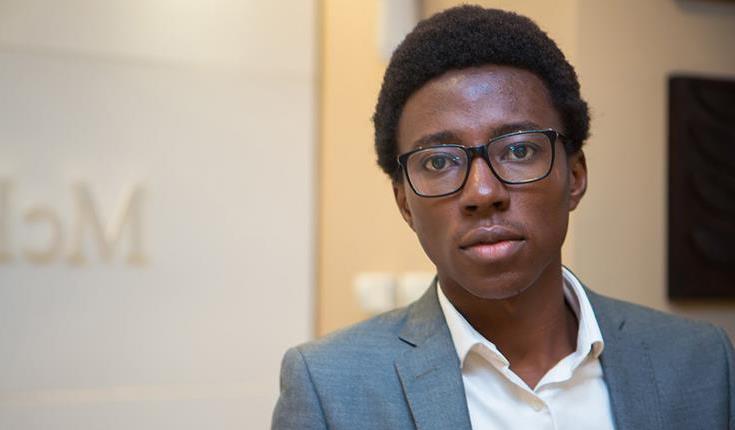Switching Gears – From Engineering to a Masters in Management

"Business school can seem daunting, especially if you don’t have a business degree."
Name: Adeyemi Gafaar
Position: Business Analyst, McKinsey & Company, Nigeria
Degree: Master’s in Management, London Business School 2016
Why did you decide to go to business school?
I decided to go to business school because I was trying to change my focus from engineering, which I studied at undergraduate level, to business. I had developed a keen interest in business during my university years and felt that it was something I wanted to pursue both education wise and career wise. I also have aspirations of running a business someday and felt that a formal education in business would give me a solid foundation to build a business on.
What's the most important thing someone considering a master's in business should know?
Business school can seem daunting, especially if you don’t have a business degree. But it is more than a place of academic learning; my experience at business school was multifaceted.
- I met brilliant individuals and built an international network of friends and colleagues.
- I was able to work alongside a diverse group of people of varying nationalities and backgrounds, which gave me a global perspective.
- I also gained interpersonal skills and self-knowledge that has helped me find my best fit in the global business world.
For anyone thinking about business school, you should consider what else there is to gain outside of the academics.
What do you wish you would have known or done when you were applying for your master's in business?
Although I am from Nigeria, I spent 6 years before business school in the U.K completing my A-levels and undergraduate education. When I decided to go to business school, I confined my search to the UK. In retrospect, I think I would have been better served if I attended a school in a less familiar area. At LBS, I had classmates from all over the world; our student body was remarkably international. However, I wish I had given myself the opportunity to experience a new culture and style of learning outside of the country.
When considering options for a master's in business, why do you think it is important to consider programs outside your own university – or even country?
In today’s world, business is increasingly conducted across cultures and borders. As such, there is a high value placed on cultural sensitivity and appreciation. A business school outside your home environment gives you an opportunity to encounter different people and cultures, which will only serve to make you a better global citizen.
What piece of advice would you give to people who want to do a master's to specialize in a particular topic OR change the field they studied as a bachelor's student?
Changing from the field you studied at undergraduate level can be scary. Coming from an engineering background, I was concerned about how I would cope in the business masters course. My advice is to find out as much about the course you are interested in as you can. Look into which subjects/modules you would be doing and talk to people who have done the same/similar programmes. This should help to reassure you that you are making the best choice of programme or enable you to find the programme that is the best fit for you.
How has business school helped shape your future?
I believe that the main benefit I gained from business school is learning to structure how business people, including myself, think about the problems and challenges they face on a daily basis. Business school has helped refine and polish the way I deal with the necessities of daily life, including my interactions with others, and has enabled me to devise new ways to tackle the challenges I currently and will continue to face.
